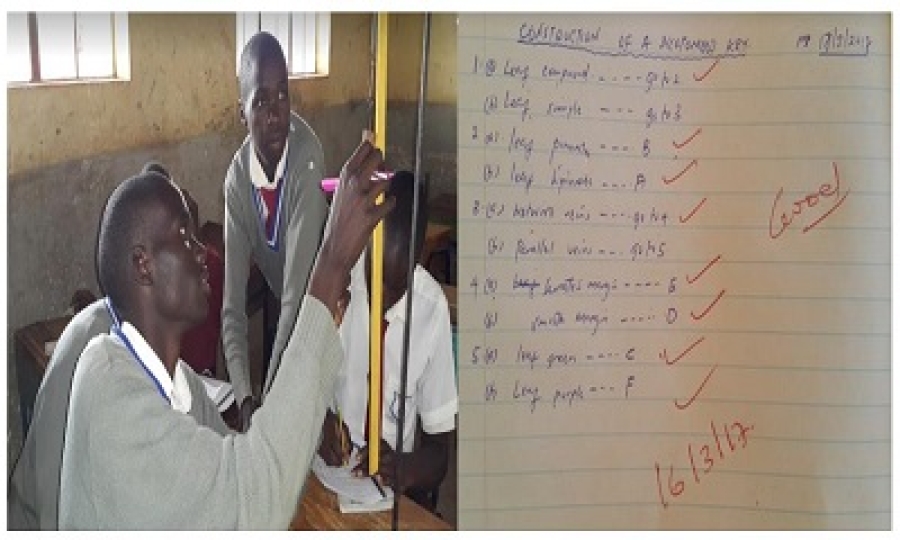The Nature of Science The Role of Feedback in Learning
By Thuo Karanja
Feedback is an essential part of science instruction. Feedback is any spoken or written response to a learner in response to their attainment levels in an assessment task, performance or product. While on most occasions, feedback is given by a teacher, learners can also give each other peer feedback. One of the most used feedback forms is grading learners' scores, marks, and grades. Such feedback is sometimes accompanied by comments such as 'good, keep it up, you need to improve, bravo, pull up your socks and see me' written on the answer scripts or in report cards. In some cases, teachers may use sarcastic, ambiguous and dismissive statements to describe attainment. Feedback is also given during the revision of assessment tasks, when teachers call up individual learners, or during academic days when parents are invited.

What is the role of feedback in learning? Feedback is intended to acknowledge learners' efforts and progress toward achieving the learning outcomes. Effective feedback should be constructive and point learners to ways to improve their learning and achievement. Studies have shown that most feedback given to learners is not practical or helpful in 'moving to learn forward'. Most learners claim that much of the feedback they receive is usually too late, vague, unclear and inconsistent to be beneficial. Feedback such as 'you are a great student', 'that was a clever response', 'well done', and 'very poor' focus personally on the learner and is not connected to the specifics of the learning goals and success criteria. It shows no evidence about the learning or the task. These are just general observations of success or failure and tend to attribute the success or failure to the personal aspects of the learner.
Research has repeatedly confirmed that feedback is more effective when it's comments based, specific and focuses more on the task, the subject and strategies for the learner's self-improvement/regulation. Self-regulation is essential, and learners need to be guided to utilise that feedback in identifying their strengths and weakness and where to put more effort into changing strategies for further development and learning. Feedback is considered weak and ineffective when it focuses on a learner's characteristics or is generalised vague comments and praise. For more knowledge and practice in the classroom and assessment feedback, watch a series of Vimeo videos by an expert on this subject, Dylan Wiliam, on https://vimeo.com/514647973

